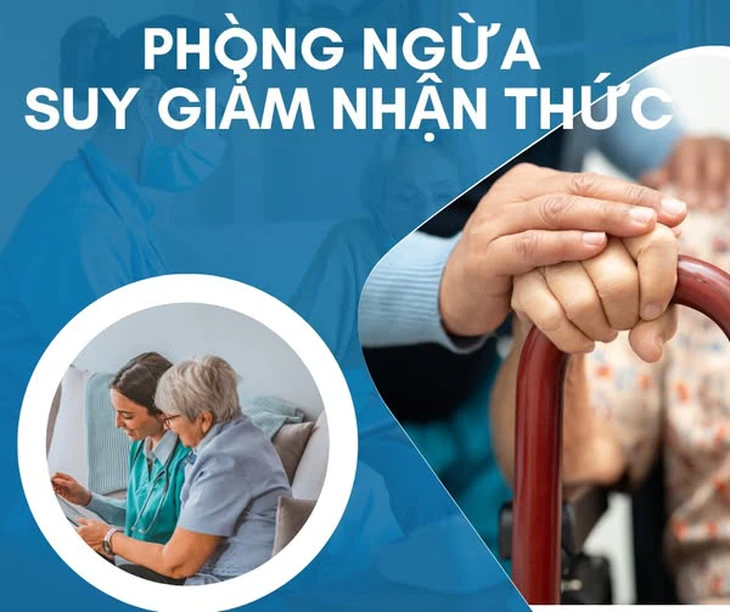
Prevention and early detection of cognitive decline in the elderly for timely intervention - Photo: BVCC
According to Master Nguyen Van Hai - Institute of Mental Health, Bach Mai Hospital, cognitive decline is a decline in thinking ability, memory, language, problem-solving ability... beyond the normal level of the natural aging process.
So who has risk factors for cognitive decline and how to prevent cognitive decline in the elderly?
Who is at high risk?
According to Dr. Hai, there are two main groups of risk factors leading to cognitive decline:
Unchangeable group:
Age: The risk increases significantly after age 65.
Genetics: Having a relative (parent, sibling) with the disease, especially Alzheimer's disease, increases the risk.
However, Dr. Hai said that family history increases the risk, not that if a family member has the disease, it will definitely be passed on to the next generation. People with relatives with cognitive impairment need to proactively take preventive measures early.
The group can change and control:
Cardiovascular and metabolic diseases: Hypertension, diabetes, dyslipidemia, obesity.
Unhealthy lifestyle: Smoking, alcohol abuse, diet high in sugar and saturated fat.
Lack of physical and mental activity: Sedentary lifestyle, little reading, little participation in mental activities.
Little social interaction: Living in isolation, little communication with friends and relatives.
Mental health: Depression, chronic anxiety, untreated sleep disorders.
According to Dr. Hai, most risk factors can be controlled by lifestyle changes.
6 principles to prevent cognitive decline
Dr. Hai recommends 6 simple and effective principles that everyone should apply from today, not only the elderly but also young people:
Regular physical exercise: No need for strenuous exercises. Walking, tai chi, yoga, gardening... at least 30 minutes a day.
Brain-healthy diet: Prioritize green vegetables, fish, nuts, vegetable oils (Mediterranean diet). Limit sugar, animal fat and processed foods.
Keep your brain challenged: Don't let your brain "retire." Read books, play chess, do crossword puzzles, learn a new language or a new skill. These activities help keep your brain flexible and adaptable.
Increase social interaction: Join clubs, community activities, regularly chat with children, grandchildren, and friends. Social communication is a great form of "exercise" for the brain.
Get enough quality sleep: Deep sleep (7-9 hours per night) is the time for the brain to "clean up" itself and consolidate memory. Limit the use of electronic devices before bed.
Manage underlying diseases well: Tightly control blood pressure, blood sugar, and blood lipids. Completely treat mental disorders such as depression and anxiety.
Dr. Hai also recommends that people should not hesitate to seek help from medical professionals. Self-diagnosis or ignoring symptoms can delay treatment. Some causes of cognitive decline, such as vitamin B12 deficiency or hypothyroidism, can be completely treated and reversed if detected early.
Source: https://tuoitre.vn/ai-thuoc-nhom-co-nguy-co-suy-giam-nhan-thuc-khi-lon-tuoi-20250905102552887.htm




![[Photo] Opening of the 13th Conference of the 13th Party Central Committee](https://vphoto.vietnam.vn/thumb/1200x675/vietnam/resource/IMAGE/2025/10/6/d4b269e6c4b64696af775925cb608560)

![[Photo] Prime Minister Pham Minh Chinh chairs the Government's online conference with localities](https://vphoto.vietnam.vn/thumb/1200x675/vietnam/resource/IMAGE/2025/10/5/264793cfb4404c63a701d235ff43e1bd)



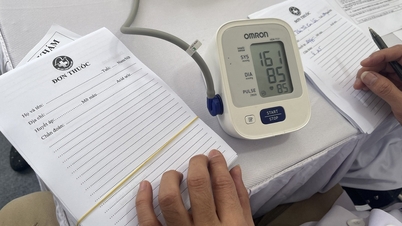







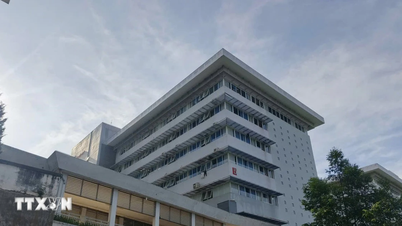

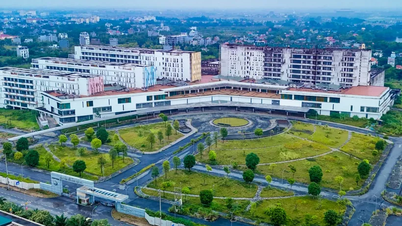




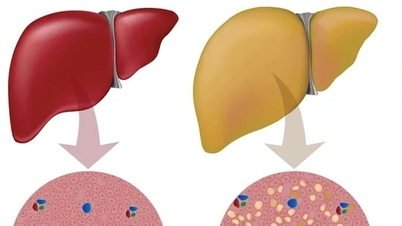










![[Photo] Prime Minister Pham Minh Chinh launched a peak emulation campaign to achieve achievements in celebration of the 14th National Party Congress](https://vphoto.vietnam.vn/thumb/1200x675/vietnam/resource/IMAGE/2025/10/5/8869ec5cdbc740f58fbf2ae73f065076)
















































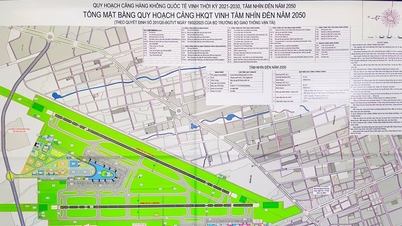


















Comment (0)